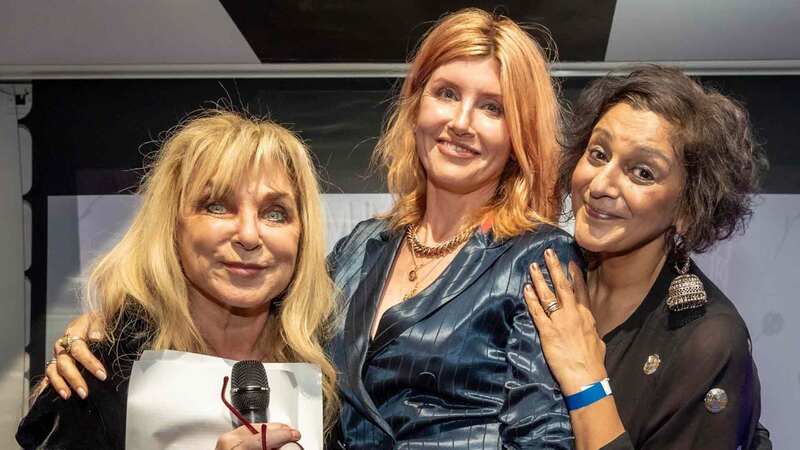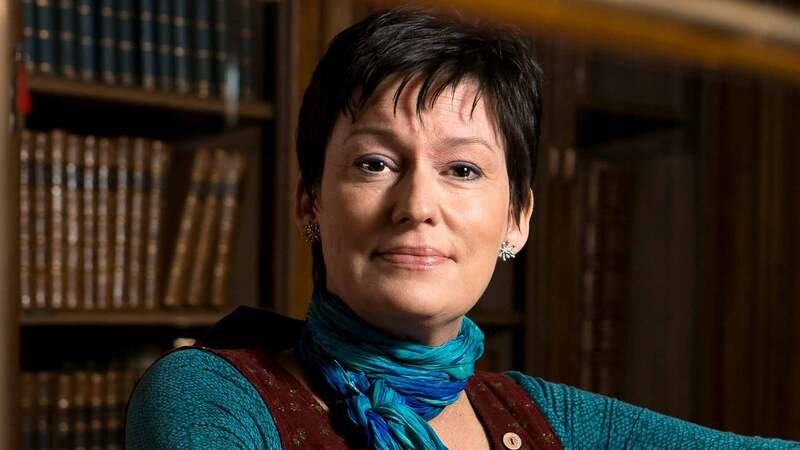You are viewing your 1 free article this month. Login to read more articles.
Authors concerned over 'triple whammy' tax blow
Recent changes to tax rules pose a “triple whammy” blow to writers, the Society of Authors (SoA) has warned.
The SoA's chief executive Nicola Solomon has told The Bookseller that proposed changes to the VAT flat rate scheme, announced in the last Autumn Statement, will "impact adversely on authors", while the forthcoming abolition of Class 2 National Insurance in 2018 is "a bombshell for authors on low incomes". A third blow in a trio of tax changes is the prospect that writers will have to submit quarterly tax updates online as part of a bid to digitise the UK's tax system. This continues to be "very concerning", Solomon said, adding that the organisation intends to lobby for changes to exempt sole traders, or for systems to be provided that take into account its members’ "unique working practices", on all counts.
"We are concerned that there are changes to tax which will create a triple whammy for authors, particularly authors on lower incomes," Solomon said. "Authors’ incomes are declining and they simply cannot afford to pay more tax and National Insurance or to spend money on expensive accountants, software or updated computers," Solomon said. "Furthermore, the pressures on authors’ time have also become greater as they are asked to self-promote by appearances and social media. They do not have the time to input quarterly accounts or to get to grips with so many new systems."
The government's Flat Rate Scheme is a means of simplifying tax calculations for traders. However, in April 2017, a higher rate increasing from 12% to 16.5% will apply to "limited cost traders", i.e labour-intensive businesses, which could include authors, when the new rules come into force. Mike Cherry, national chairman of the Federation of Small Businesses, recently told the BBC he would be "concerned if any small businesses who play by the rules now end up having to pay more to remain within the scheme".
The government's intention to scrap Class 2 National Insurance from April 2018 will mean people who do not earn enough to pay Class 4 contributions (currently £8,060 per annum) will have to pay five times as much for their state pension than at present, according to the SoA. Current Class 2 contributions are £2.80 per week; in future, these low earners will have to pay £14.10 per week, and fears are this figure will only increase over time. "This will affect many of our members," said Solomon, in acknowledgement of authors’ average earnings, estimated to be around £12,500, according to a recent EC study.
According to HM Revenue & Customs (HMRC), the move is a bid to deliver a "simpler overall regime", and those with profits below the Small Profits Limit (set at 52 x the Lower Earnings Limit, equating to £5,876 in annual profits for 2017/18) will continue to be able to gain access to the new State Pension through Class 1 National Insurance, through NIC Credits or through payment of voluntary Class 3 NICs. It added the current ability of the self-employed to access maternity allowance at the higher rate will be maintained irrespective of their annual profits.
The rule changes follow government proposals that all self-employed workers should submit a quarterly tax "update" in an approved format to HMRC as part of its Making Tax Digital (MTD) roadmap to make the tax system "fit for the digital age" by 2020.
The MTD proposals have sparked fears it will be those already on meagre incomes who are forced to pick up the cost of the changes, both in monetary terms and in time, potentially distracting from the business of writing. One SoA member, a full-time author, contributed anonymously to the SoA website saying it would be "unduly time-consuming, with no discernable benefit for HMRC" and "reduce my ability to concentrate on my writing". Another member, Sheila Norton, said: "The thought of doing anything tax-related (however little it involves) four times a year instead of once still makes my heart race".
Another, Leslie Wilson, said: "Many authors don't earn what anyone could call significant amounts, and to have to fill in quarterly updates - which would indeed interfere with them working for their paltry earnings - is rather like adding insult to injury."
David Gauke, a spokesperson for the Treasury, assured MPs during a debate in the House of Commons last year- prompted by a SoA petition - that the quarterly updates would not involve the complexity of a full tax return.
However, Solomon said she remains concerned about the burden the changes placed on authors: "These proposals will add further unnecessary stress and expense to authors, many of whom are already earning very marginal incomes. Authors’ incomes fluctuate wildly as they work on a cycle of publication and promotion. They will receive income at differing times, often from several different publishers as well as other income for rights sales or appearances. Expenses are complex: they often include apportionments for use of home, for example, insurance policies, mortgage interest, council tax, all of which have to be apportioned depending on business use percentage. Many do not work electronically and indeed could not since they are still paid by paper methods. They cannot afford to instruct accountants to do more work," she told The Bookseller.
According to trade union The Writers’ Guild of Great Britain (WGGB), these MTD reforms will "significantly affect" authors who are self-employed, because they will need to install new, approved software and receive support and training - all at a cost. It estimates that quarterly submissions could escalate accountancy costs by as much as 400%.
Both WGGB and the SoA believe the £10,000 threshold for gross turnover requiring authors to submit quarterly updates is "far too low" and have suggested an alternative VAT registration threshold at £83,000. Both suggest software and training support should be provided free of charge for users to be able to complete the updates. The WGGB has also called for the new rules not to be rolled out "until there is fast broadband coverage across the whole of the UK", while the SoA said it thinks workers in the entertainment and creative industries should be "entirely exempt from the regime" because their earnings are so uneven.
The MTD proposals are due to be included in the 2017 Finance Bill, set to be consulted on until 1st February 2017. According to the government the “final contents of Finance Bill 2017 will be subject to confirmation at Budget 2017” which is scheduled for 8th March. MTD is due to commence operating in April 2018.
An HMRC spokesperson said: “We will not be asking anyone to file quarterly tax returns as part of plans for Making Tax Digital. Businesses will need keep their records digitally and then simply send in-year updates to HMRC so their records remain accurate. This will help businesses pay the right amount of tax, and limit the need for them to spend time putting things right at a later date.
“The abolition of Class 2 NICs will simplify the rules for the self-employed who currently have to work with two separate classes of NICs, each with different rates and rules. This measure will mean that from April 2018 the self-employed will only have to engage with one class of NICs, delivering a simpler overall regime. Those with profits below the Small Profits Limit will continue to be able to gain access to the new State Pension through Class 1 NICs, through NICs Credits or through payment of voluntary Class 3 NICs.”

















